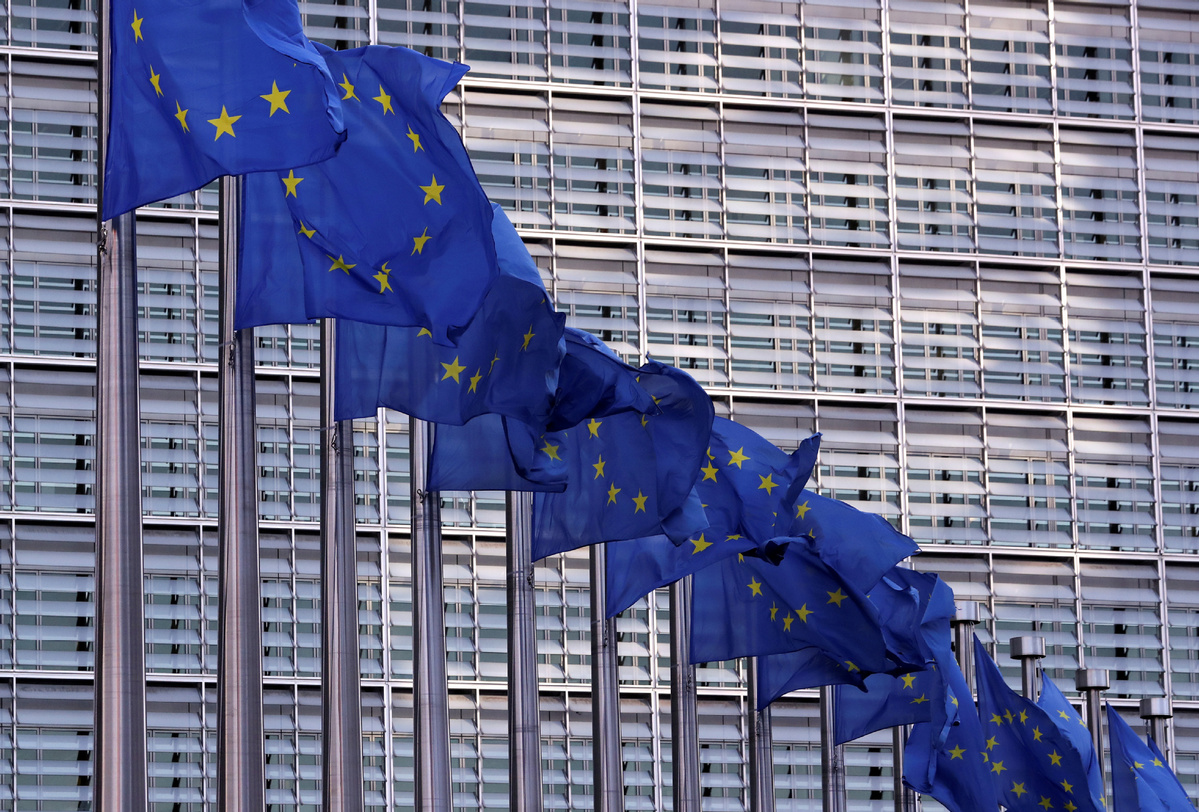
File photo: Agencies
China's ambassador to the European Union has called for "communication and negotiation" to address trade disputes, especially to protect developing countries, after Brussels imposed tariffs on Chinese manufacturers in Egypt.
The EU yesterday imposed anti-subsidy levies on companies including two Egyptian subsidiaries of China National Building Materials Group Corp, arguing that they benefited from subsidies allowing them to sell at comparatively low prices in Europe. The ruling was the first time that Chinese businesses abroad have been targeted by such action, which previously only addressed alleged subsidies provided by the country where the exporters were based, according to Reuters.
Speaking to CGTN, Zhang Ming said China's use of subsidies was in accordance with World Trade Organization rules and that the partnership with Egypt was an important example of developing nations supporting each other.
"The South-South Cooperation, which refers to cooperation between developing economies, is a very important engine for development," he said in a video interview. "We hope the EU will maintain communication with partners, and resolve differences via communication and negotiation, especially with respect for cooperation among developing countries."
Through its Belt & Road Initiative (BRI), China has built a network of trading relationships across the world, offering development opportunities and encouraging collaboration between its businesses and local partners. The policy is a key part of the country's foreign policy.
Two of the companies hit by the EU tariffs are based in the China-Egypt Suez Economic and Trade Cooperation Zone. The zone was created in 2008 and extended in 2016 in a ceremony attended by Chinese President Xi Jinping on a state visit to Egypt.
Its significance was made clear at the time by Wu Lixing, the director of the cooperation zone, who told official Chinese news agency Xinhua: "Egypt is located at the border of Asia, Africa, and Europe and has established friendly relations with China."
He added: "With the deepening of the BRI and the development plan of Egypt's Suez Canal Corridor, the establishment of a Chinese overseas economic and trade cooperation zone in Egypt will strengthen and deepen the capacity cooperation between the two countries, which has a profound significance."
This dispute involves EU imports from Egypt of glass fiber fabrics, which are an industrial material used in everything from wind turbines to sports equipment.
The European Commission said the two Egyptian exporters of glass fiber fabric, which are subsidiaries of China Jushi Co. and Zhejiang Hengshi Fiberglass Fabrics Co., received financial benefits from the Chinese and Egyptian governments. Their exports will be subject to 30 percent tariffs under yesterday's decision, according to Reuters. Exporters based in China face levies of more than 99 percent.
According to the official journal, the European Commission said manufacturers including European Owens Corning Fiberglas in Belgium and France-based Chomarat Textiles Industries, suffered "material injury," from China's subsidies.
China's ambassador said discussions over subsidies with the EU were ongoing, noting that Beijing objected to EU support for farmers.
"The issue of subsidies is an issue of common concern to the international community," he said.


